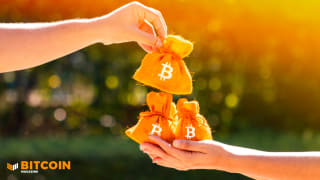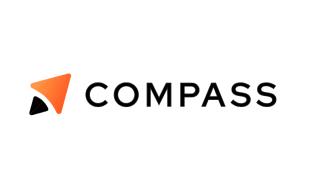
People have always traded informally on event outcomes. “Johnson will never win re-election.” “The Orioles are going all the way this year.” “Going to be a long winter.” “You won’t make that traffic light.”
But what if there were an actual market for those predictions? Imagine a world where everyone with an Internet connection could market a prediction about anything. A world where an infinite number of predictions with an infinite variety of parameters could be created about the same event. What if you could buy a share in one of those predictions ‒ for example, the outcome of a political election ‒ and get paid if your prediction were accurate?
Imagine that the entire world has access to precise information about local and global trends, in real time. The implications are profound. What if everyone from a small business owner to a global enterprise CEO could be certain of new trends for the coming month or year? What if a farmer could use this information to hedge his bet against natural disaster destroying his crops? If a relief organization could use it to evacuate before a political crisis? If a company could avoid financial collapse or gain new insights into global markets? What if a country could avoid a war?
What if this information was not only accessible but free?
Augur recently released a beta version of its prediction market software in hopes of making this future a reality.
One of the First DApps on Ethereum
Augur is an open-source, nonprofit decentralized prediction market and one of the first decentralized applications (DApps) being built on the Ethereum Web 3.0 publishing platform. It uses information aggregation, the “wisdom of the crowd,” to allow the Augur community to buy shares in the outcome of future events and project the likelihood of those events occurring.
In an interview with yBitcoin, Joey Krug, Augur co-founder and core developer, and Jeremy Gardner, director of operations, explained that Augur’s mission is “to create better public forecasting tools” that can be used to enhance decision-making processes. When people have accurate information, they can make better decisions. The platform operates on the principles that (a) people will choose event outcomes that will preserve their funds, and (b) the most popular answer in a large crowd is usually the most accurate and truthful when it comes to predicting outcomes.
Augur has no potential central points of control, failure or censorship and no middlemen. Anyone with an account, anywhere in the world, can create a market about anything imaginable. In fact, an unlimited number of prediction variations can be created for a single event. The parameters of the market are entirely up to the trader who creates it, as long as the prediction remains within the Augur code of conduct.
Krug explained the team’s choice to develop on the Ethereum network in a blog post. “With Ethereum, we don’t have to deal with low-level networking or security ‒ that all falls under Ethereum’s purview … . It’s also much simpler than building on Bitcoin core …. This means we can build our software faster and improve upon it quicker than with any other method, which after enough iterations, allows us to build the best possible platform for prediction markets.”
Prediction Market Beta Walkthrough
Anyone can try Augur for free right now and view some of the different predictions that participants are making. These predictions cover a wide range of topics, from the weather (“What will be the average temperature across global land and ocean surface temperatures combined for March 2016 according to NOAA in centi-degrees celsius?”) to politics (“Will Donald Trump win the U.S. presidency?”) to the humorous (“Will Batman and Superman fight each other?”). To view the entire list or make your own, visit Augur.net.
Right now, Augur traders can opt to participate in any of three differently formatted prediction markets: one that utilizes the answers to yes-or-no questions, one using numerical answers, or one using multiple-choice answers. The Augur team explained in a recent blog post that they “will soon be adding the capability for market creators to set initial prices/odds [which] should make all markets more useful ‘weather reports’ from the start, even before trading commences; [and] we’re also incorporating new, market-driven defenses and failsafe mechanisms against bad actors and unanticipated attacks of the system. These core engine enhancements will be fully detailed in a forthcoming revision of Augur’s original working paper.”
After creating an account, a trader can click on the “Markets” tab to view a list of all available markets to predict, or click on “Create New Market” to create his own.
For each market, traders are able to buy and sell shares in the outcome of an event. The market price of a share is the current estimate of the probability that event will occur. For example, if there is a 70 percent chance of an event occurring, the price of a share will be 70 cents. Augur uses Bitcoin as its principal token; funds go in as Bitcoin and are taken out as Bitcoin; all prediction events and share transactions are recorded on the decentralized Augur platform.
To power the beta, each new trader starts with five test ethers, 50 test REP and 10,000 test dollars. REP or “Reputation” is the token that powers Augur’s oracle consensus and doubles as a built-in social currency to ensure the network stays trustworthy.
Participants with REP, known as reporters, are required to act as regulators of the many markets being created by traders, recording the results into the blockchain. Reporters report the outcomes of events by submitting a verifiable Internet source. If the reporter has a source that matches the consensus of the crowd, their Reputation score increases. Alternatively, if a reporter’s source disagrees with the consensus, they lose Reputation and their future reporting will carry less weight. A report from a participant with a high Reputation score carries more weight than a reporter with a low score, which ensures that event outcomes are reported truthfully.
During the month after an event occurs, consensus is generated among the different reporters about the outcome of the event. Traders who made the correct prediction are paid, without any trading fee deducted, and small fees are paid to honest reporters. On the other hand, dishonest or negligent reporters lose Reputation, which goes to the people who reported the event accurately.
A Decentralized Public Forecasting Tool
Augur eliminates the house advantage that has been the norm in all prediction markets until the present. With Augur, prediction markets are no longer controlled by an individual or small group of individuals. If an Augur trader wants to set a spread or make a prediction that hasn’t been added yet, he or she needs only to create a market and the community will determine the odds.
The future for Augur is broad. It is a public forecasting tool that will likely be relevant everywhere ‒ from small family businesses to the largest global undertakings. If a business wants to determine anything, from today’s most popular color or vacation spot to planetary carbon emission levels 20 years from now, all it needs to do is create a market for a prediction and watch the reaction from the crowd.










